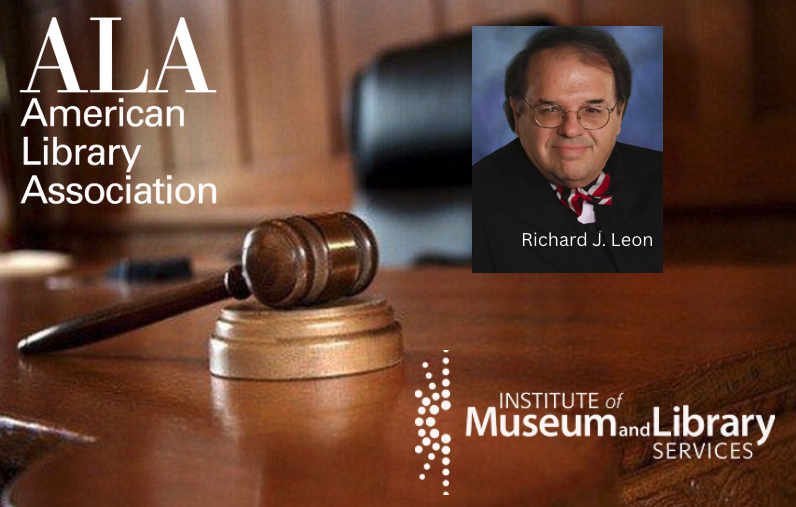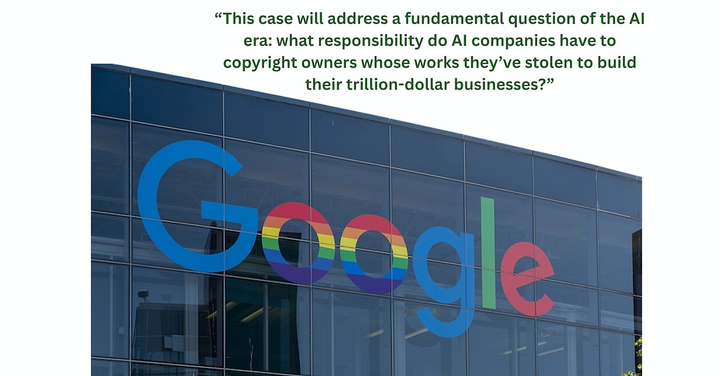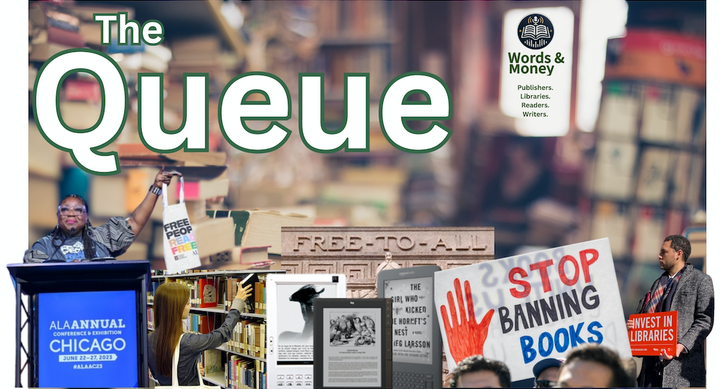Court Extends Temporary Block on IMLS Destruction, Orders Briefing on the DOJ's Bid for Reconsideration
Leon's order follows a status report delivered by the parties in 'ALA v. Sonderling' on May 6, and a DOJ motion asking the judge to dissolve his order in light of a recent appeals court decision in a nearly identical case.

Over the objections of Trump Administration lawyers, judge Richard Leon has extended his May 1 Temporary Restraining Order blocking the Trump Administration's further dismantling of the Institute of Museum and Library Services to May 29, citing "the dynamic nature" of the case and "the importance of the issues at stake." In a potential wrinkle, however, the court also ordered briefs on a DOJ motion for reconsideration, which asks Leon to rescind his block in light of a recent appeals court decision in a nearly identical case.
Leon's order follows a status report delivered by the parties in ALA v. Sonderling on May 6. While extending his TRO by two weeks, Leon gave the ALA plaintiffs a deadline of May 13 to file supplemental briefings on their still-pending motion for a preliminary injunction, as well as their response to the DOJ's motion for reconsideration. Trump administration lawyers will then have until May 16 to file their response to the ALA's supplemental briefings and any reply in support of their motion for reconsideration.
As we reported this week, The DOJ's motion for reconsideration comes after a May 3 appeals court ruling in Widakuswara v. Lake, an action DOJ lawyers call "strikingly similar" to the IMLS case now before Leon.
In Widakuswara, a coalition of Voice of America journalists and several grantees are seeking to block the Trump administration’s dismantling of the United States Agency for Global Media, which, like the IMLS, was also part of the administration's March 14 executive order. On April 22, Royce C. Lamberth, a Reagan-appointed conservative senior judge, found that Trump's order and the subsequent actions taken to implement likely run afoul of the Administrative Procedures Act and the Constitution, and issued a preliminary injunction ordering the administration to “return USAGM employees and contractors" to their status prior to Trump's March 14 order, including the restoration of employees and contractors "placed on leave or terminated," and the disbursement of funds appropriated by Congress.
But in a 2-1 decision delivered on May 3, appeals court judges Gregory G. Katsas and Neomi Rao—both Trump appointees—ordered a stay of Lamberth’s injunction, concluding that, contrary to Lamberth's findings, the government was in fact likely to prevail in the case, based on the DOJ's standing and venue arguments rejected by Lamberth, as well as in both IMLS cases.
In their motion for reconsideration, DOJ lawyers are asking Leon to dissolve his TRO, arguing that since Widakuswara "cannot meaningfully be distinguished" from the ALA's case, the appeals court's "dispositive analysis" in Widakuswara should apply "in equal force."
At press time, however, it is unclear whether the appeals court decision in Widakuswara will hold up. A third judge on the panel, Cornelia T.L. Pillard, an Obama appointee, issued a fiery and lengthy dissent rejecting the administration's defenses. And the the plaintiffs have moved for the appeal to be reheard en banc before the full D.C. Circuit Court of Appeals.
In concluding her dissent, Pillard warned that it could be game over for the United States Agency for Global Media if the current appeals court stay remains in force.
“Rather than preserving the relative positions of the parties, this stay all but guarantees that the networks will no longer exist in any meaningful form by the time this case is fully adjudicated,” Pillard concluded. “I regret that networks charged with exemplifying the ideals of free speech, free opinion, and a free press to the world at large are silenced by our own government’s action in disregard of the expressed will of Congress—actions that, as the district court most ably explained, are likely to be found unlawful.”


